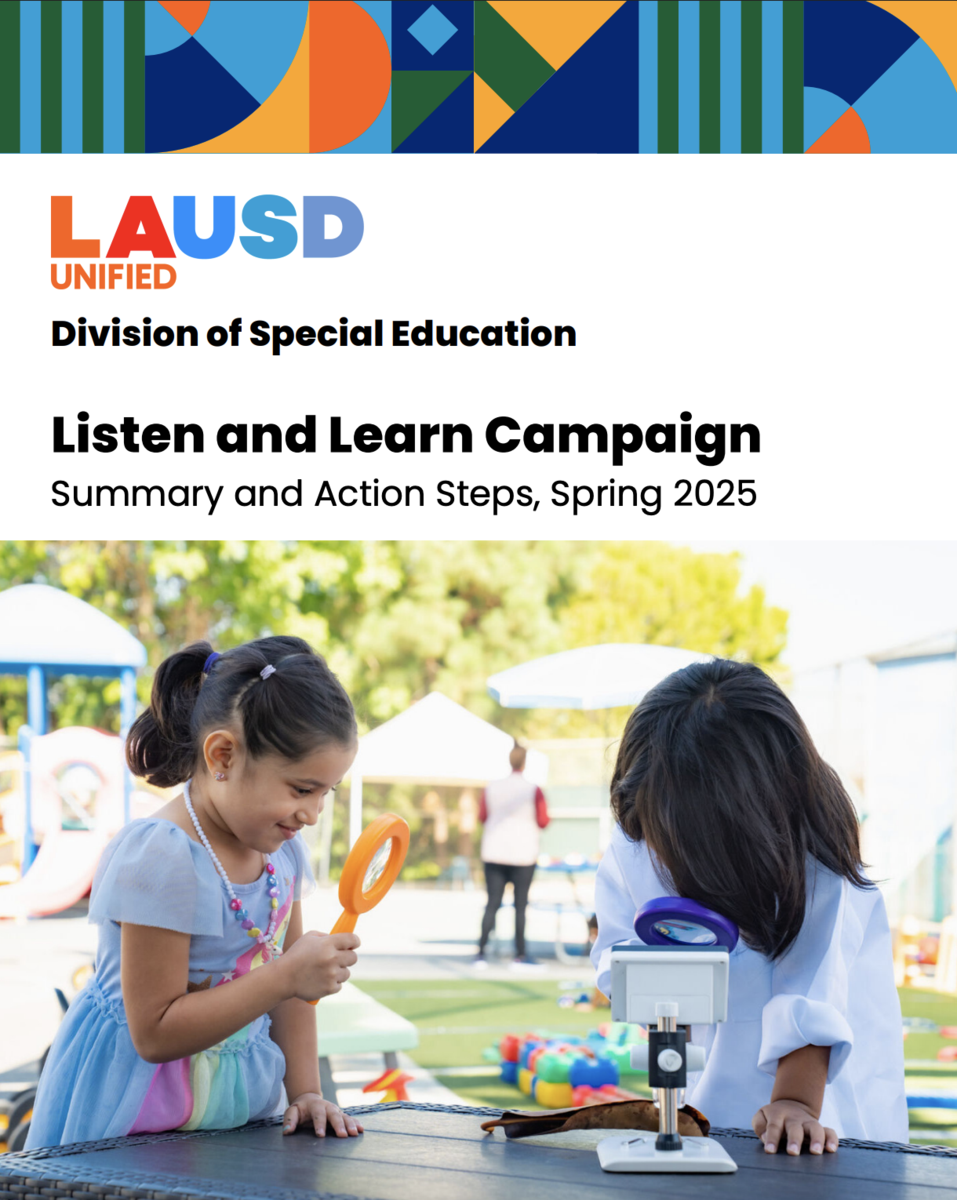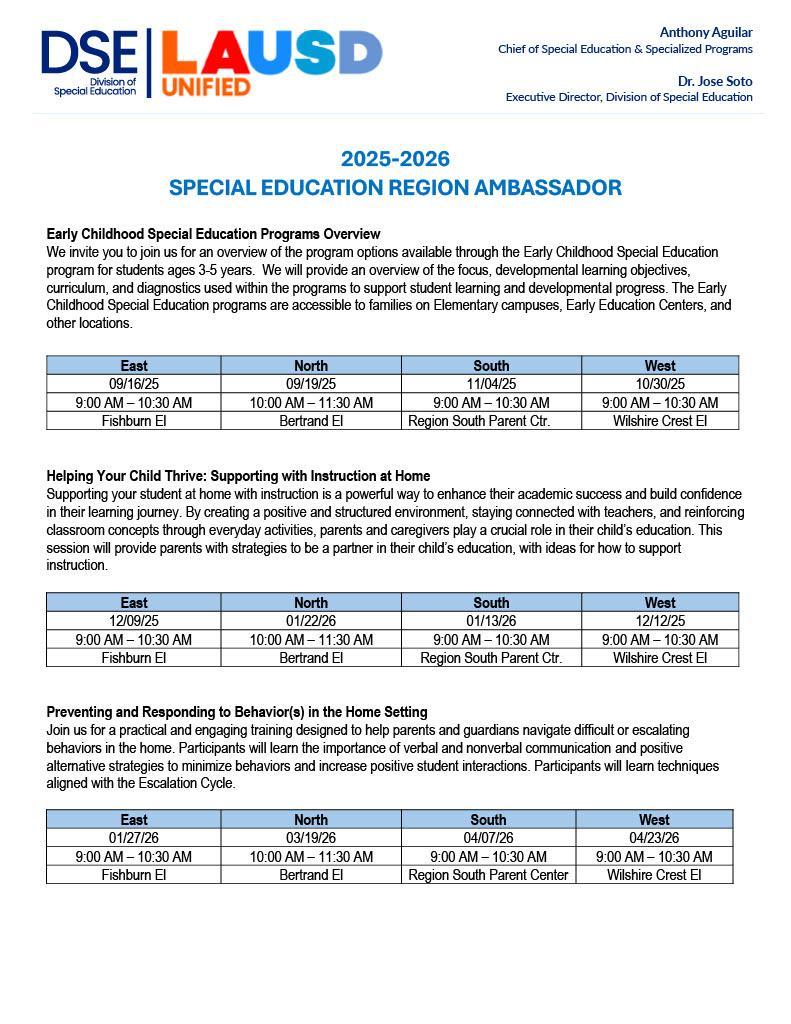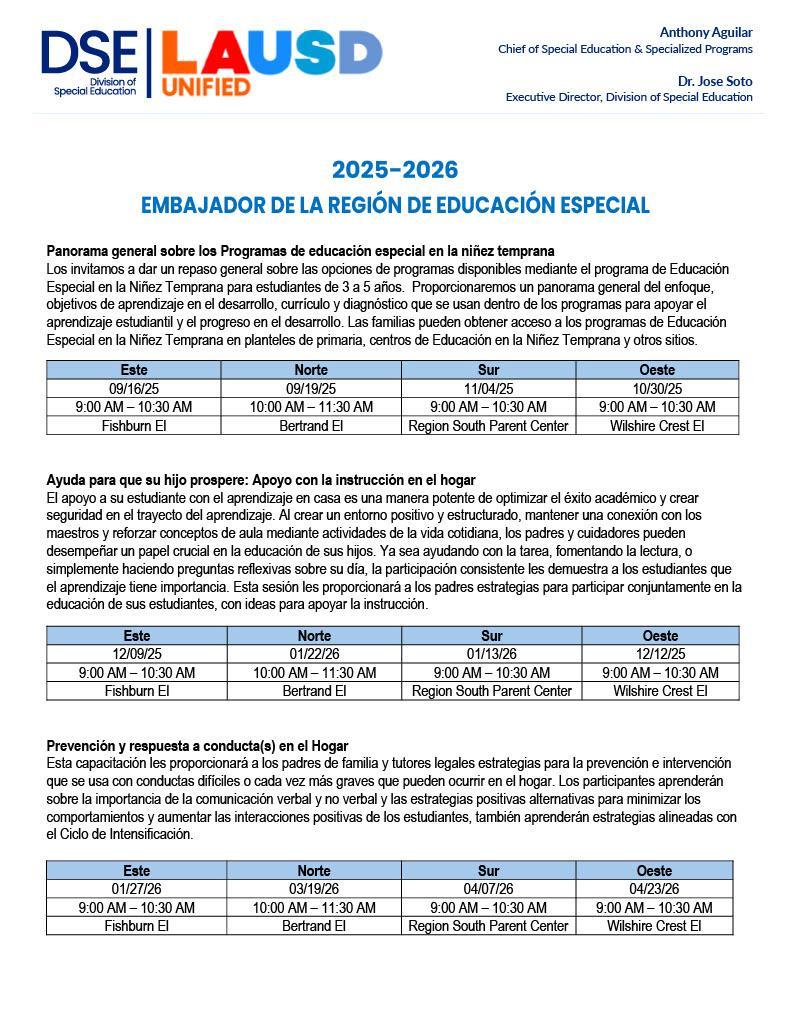Alternate Dispute Resolution (ADR)
Alternate Dispute Resolution (ADR) is an optional informal process adapted by the Los Angeles Unified School District (LAUSD) and supported by the California Department of Education (CDE) for resolving special education concerns early. The ADR process uses communication, collaboration, and consultation to resolve Individualized Education Program (IEP) disagreements. It is through the ADR process that LAUSD seeks to expedite resolutions to special education concerns after an IEP meeting, in a manner that meets the needs of the student at the earliest opportunity possible.
Informal Dispute Resolution (IDR)
Informal Dispute Resolution or “IDR” is an optional dispute resolution process available to parents. IDR is a District process that is designed to be faster, less formal and less adversarial than mediation and due process proceedings. In the IDR process, parents identify their issues and concerns and the District attempts to work with the parent to quickly resolve the issues identified.
Mediation Only
“Mediation Only” is a state-level, voluntary dispute resolution process under the Office of Administrative Hearings (OAH). In Mediation Only, a neutral mediator assists you and the District in discussing and attempting to resolve your disagreement. The mediators are not employees of the District and do not have any personal interest in the disagreement. The mediators are selected on an impartial basis by the State and know the laws and regulations relating to the provision of special education and related services. The Mediation Only process includes a mediation conference attended by you, the assigned mediator, and a District representative who has decision-making authority. Lawyers or advocates, for the student/ parent or for the District, are not permitted to participate in Mediation Only.
Due Process Hearing
Due process hearing requests are dispute resolution proceedings required to be available to parents and school districts under the Individuals with Disabilities Education Act (IDEA). You or the District may file a due process complaint on any matter relating to a proposal or refusal to initiate or change the identification, evaluation or educational placement of your child or the provision of a free appropriate public education (FAPE) to your child. The proceedings begin with the submission of a complaint notice and include a resolution period with a mandatory resolution session meeting, optional mediation, and a due process hearing before an impartial hearing officer. The District convenes the resolution session meeting. The Office of Administrative Hearings (OAH) conducts the optional mediation and the due process hearing. It may not be necessary to go through all of the due process proceedings to reach resolution. A due process complaint may be resolved by mutual agreement of the parties at any stage of the proceedings.


















